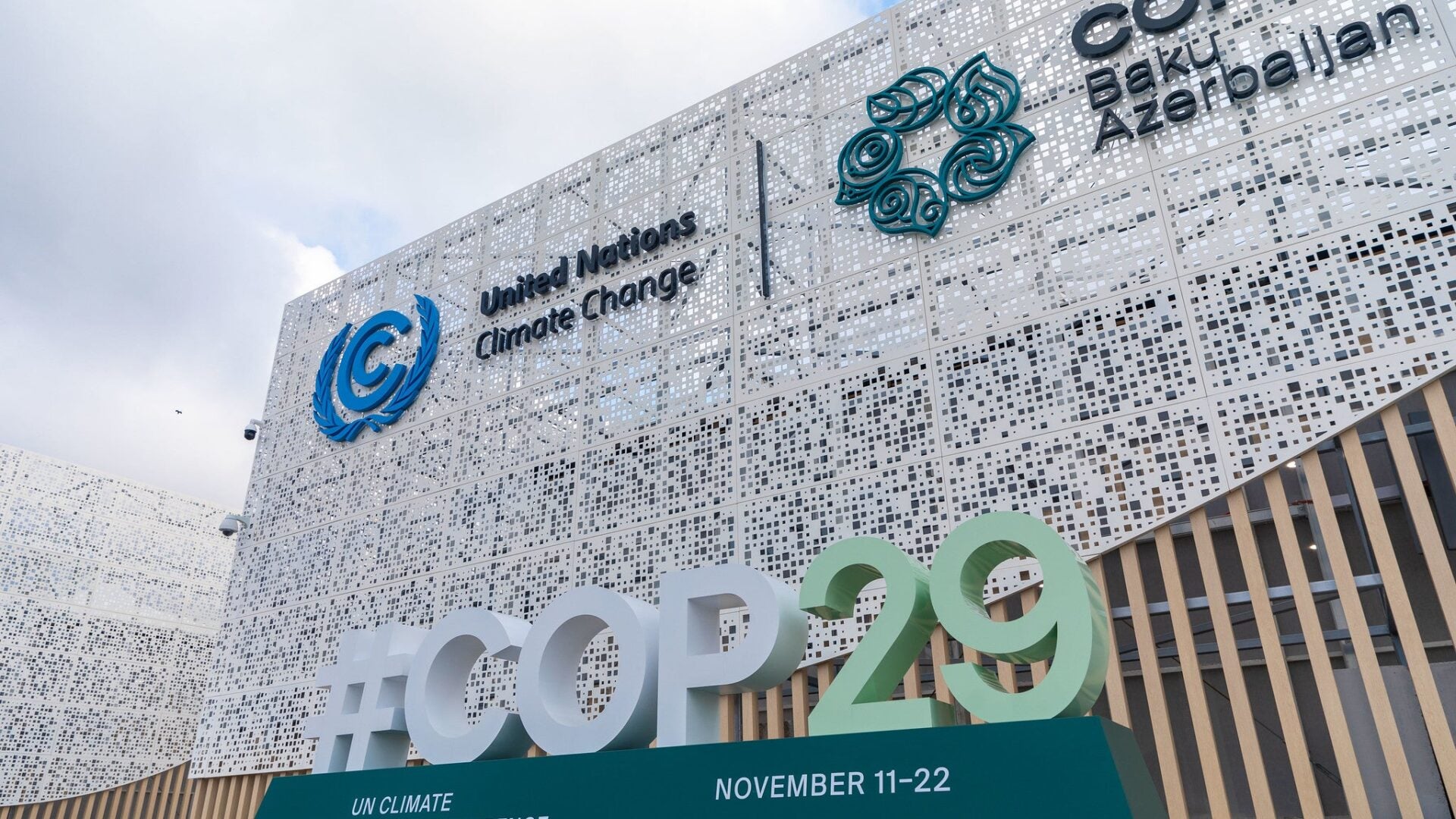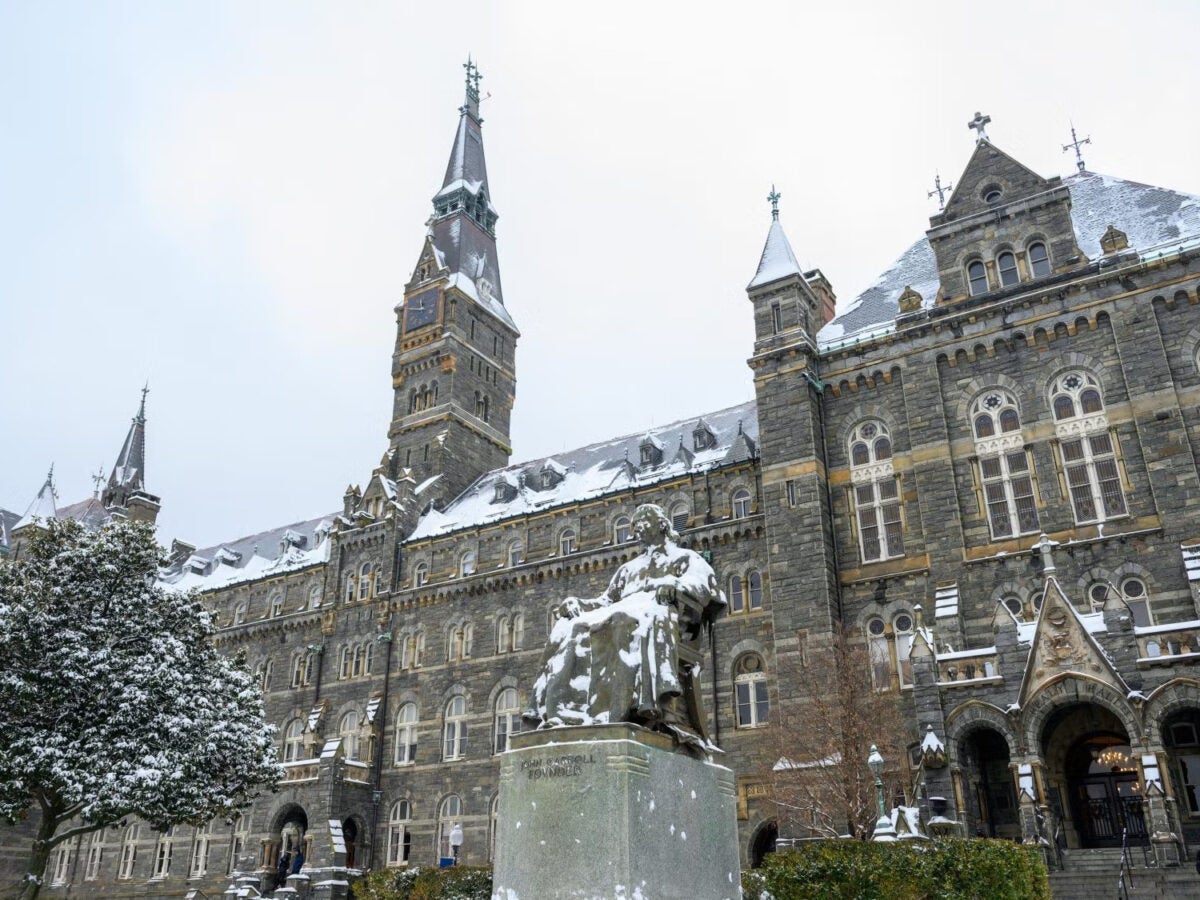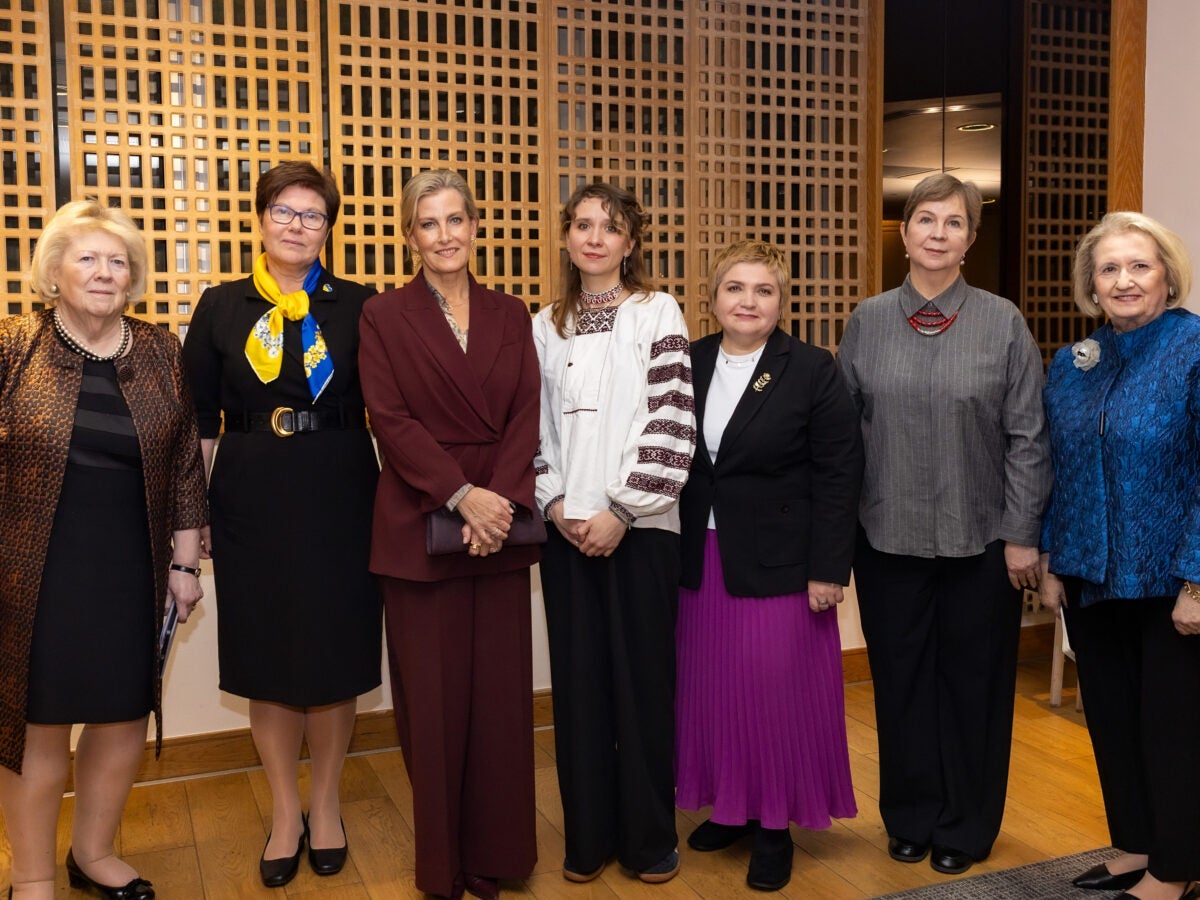Three Takeaways from COP29

The stakes were high for advancing gender-responsive climate action going into the 29th Conference of Parties (COP29) after gender negotiators received pushback on advancing the gender and climate agenda at the Bonn Conference this summer. As armed conflicts with devastating climate and environmental implications rage around the world, it is more important than ever to advance an ambitious climate action agenda that centers the needs and leadership of women, particularly in highly vulnerable and conflict-affected areas.
A delegation from the Georgetown Institute for Women, Peace and Security (GIWPS) traveled to Baku, Azerbaijan, to host side events and promote recommendations for climate action that is gender-inclusive and conflict-sensitive. Despite coordinated advocacy efforts across multi-stakeholder groups, the final result was disappointing: COP29 failed to set ambitious finance targets and lost momentum on commitments made last year to transition away from fossil fuels. Parties pledged far too little to address the actual global need, leaving developing nations who bear the brunt of climate impacts severely disadvantaged. This shortfall in financing means that women who are on the frontlines of the climate crisis–who already struggle to access their share of resources–will continue to shoulder the worst effects of climate change. Although there is plenty of work ahead, the adoption of an enhanced 10-year Lima Work Programme on Gender was a notable step forward and enshrines a long-term mechanism to push for gender-inclusive climate action within the UNFCCC.
Here are Three Key Takeaways from COP29
1. Climate Finance Falls Short and Gender Finance is Overlooked
All eyes were on what had been referred to as “the finance COP” as parties agreed on a post-2025 target: a New Collective Quantified Goal on Finance (NCQG). Developed nations eventually committed to tripling finance and channeling “at least” $300 billion a year to developing nations until 2035–but this was widely heralded as a huge disappointment as it fell short of the estimated $1.3 trillion needed annually to address climate change. Gender finance was also lacking. The adopted text eliminated suggested language on conflict-affected states, human rights, and gender-responsive finance from earlier drafts. The agreed NCQG includes just one reference to women, which “Urges Parties and other relevant actors to promote the inclusion and extension of benefits to vulnerable communities and groups in climate finance efforts, including women and girls,” but sets no clear targets for how much finance should be allocated specifically to adaptation or to addressing climate disasters. It also fails to articulate specific plans for implementing mechanisms to ensure gender-responsive provisions are operationalized with gender-smart criteria and metrics—a key action to promote accountability outlined in our COP29 recommendations.
COP29 also established procedures to operationalize the Loss and Damage Fund, which provides resources for climate-related damages in developing countries. A key test in the coming months will be the successful operationalization of the Fund, which is still lacking in resources and saw no additional funding commitments this year.
2. Gender Work Plan Advances Despite Significant Attempts to Push Back
After much back and forth, negotiators successfully extended the Enhanced Lima Work Programme on Gender (LWPG) for an additional ten years. The LWPG, which was first adopted in 2014, represents an essential commitment by Parties to mainstream gender in climate actions and provides a roadmap for developing a Gender Action Plan (GAP) to be adopted at COP30. The decision came at the eleventh hour after negotiations were stalled due to pushback on language on human rights and equality. Parties struggled to not only advance a more inclusive and intersectional work programme, but also to hold firm in previously agreed language and ensure it was not rolled back. Finalizing the GAP will be a key priority at COP30, alongside efforts to raise ambition for gender-responsive implementation of the Global Goal on Adaptation.
3. Awareness of Linkages Between Climate and Security Grows
A more positive outcome of COP29 was the growing recognition of the connection between climate and conflict, including a thematic day on “Relief, Recovery and Peace,” where the COP Presidency announced the “Baku Call on Climate Action for Peace, Relief and Recovery.” The Call recognizes the disproportionate vulnerability of women, children, and youth in conflict-affected settings and establishes the Baku Climate and Peace Action Hub, a cooperative platform designed to facilitate collaboration between national, regional, and international peace and climate initiatives to ensure peace-sensitive climate action. The Just Transition movement offers an additional opportunity to promote approaches that account for the intersection of gender, climate, and security and are inclusive of women, youth, Indigenous groups, and other vulnerable populations. Unfortunately, there was no agreement on a Just Transition Work Programme, leaving frontline communities affected by climate, including women in the agricultural sector, especially vulnerable.
Please refer to the UNFCCC summary of global climate action at COP29 for more information.
Call to Action: Looking Toward COP30
COP29 resulted in modest steps toward inclusive climate action, and yet glaring gaps remain to address the needs of women facing the most dire consequences of climate change and crisis. Bold commitments and accelerated action are needed over the next year in advance of COP30 in Belém, Brazil. GIWPS has identified key recommendations and priorities for Parties and engaged stakeholders to focus efforts and deliver effective action for women:
- Meaningfully integrate gender-responsive commitments into Nationally Determined Contributions with sufficient resourcing and implementation plans.
- In 2025, Parties will submit their new rounds of Nationally Determined Contributions, as mandated by the Paris Agreement. Parties must make gender-sensitive commitments and strengthen the collection and use of gender-disaggregated data for this and future rounds of NDCs.
- Parties should acknowledge and account for the disproportionate impact of climate change on women in revised NDCs.
- Develop a strong and well-resourced gender action plan (GAP) based on the new 10-year Enhanced Lima Work Programme on Gender.
- Parties must recommit and redouble efforts to safeguard language on gender equality and human rights and should leverage the GAP to promote gender balance and coherence in UNFCCC processes.
- Accountability mechanisms for the GAP must be developed and enforced to ensure Parties meet targets and deliver on commitments for inclusive climate action.
- Ensure the operationalization and allocation of the New Collective Quantified Goal on Finance is equitable and gender-responsive.
- As the NCQG moves forward, commitments must be ambitious and engage multiple sources of public and private funding to ensure women on the frontlines of climate impacts in developing countries get the climate financing they need.
- Women must be involved in decision-making around how the funding is managed, and gender-responsive allocation and direct access to finance for women, including for adaptation and loss and damage must be ensured.
- Effectively integrate gender-climate-security considerations across UNFCCC processes and COP thematic days.
- Parties, grassroots organizations, and private sector stakeholders should coordinate advocacy efforts and sustain pressure on the COP30 Presidency to prioritize gender and climate security as cross-cutting issues in Brazil.
- Parties should utilize the newly created Baku Climate and Peace Action Hub to coordinate gender-responsive action on climate change, conflict, and humanitarian issues.
- Appoint more women negotiators and promote women leadership at COP30.
- Women must be represented at all levels of COP30 leadership and in influential roles on negotiation teams. Despite the disproportionate impact of climate change on women and girls—and the critical role played by women who are on the frontlines of solutions—just 8 out of 78 world leaders who took the global stage at the opening of COP29 were women.
- Parties should ensure gender parity in COP delegations and nominate women to influential roles in negotiations.
GIWPS’ participation in COP29 was generously supported by the Embassy of the Federal Republic of Germany in Washington, DC.
Explore More

End of Year Reflections
This year has been particularly challenging for peace around the world, with…

“No Amnesty, No Silence:” Ukrainian Women Urge Accountability for War-Time Sexual Violence
Last week, the Georgetown Institute for Women, Peace and Security (GIWPS) brought…
